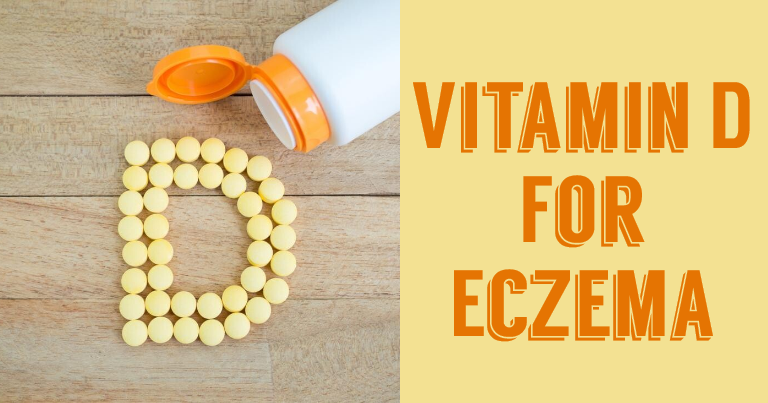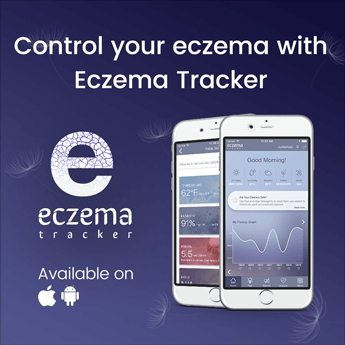Vitamin D plays an important role in the overall bone health and skin of the individuals. It is a nutrient found in some foods that are needed to maintain strong bones and healthy skin. Every minute approximately 40,000 skin cells are renewed, and this process directly depends on vitamin D production.
What is vitamin D?
Vitamin D is one of the major nutrients needed by individuals to stay fit and healthy. Apart from vitamin’s main functions, it helps the body perform the following tasks:
- Absorb calcium: Vitamin D, along with calcium, helps build bones and keep bones strong and healthy.
- It helps to block the release of parathyroid hormone: As this hormone reabsorbs bone tissue, that makes bones thin and brittle.
- Play an important role in muscle function and the immune system: The immune system is known as the body’s defense system that helps protect it against infections or other illnesses. So taking vitamin D every day has been shown to reduce the risk of falling in older individuals.
Too little vitamin D in our body may result in Vitamin D deficiency, which has been associated with the development of softening and weakening bones.
Signs and Symptoms of Vitamin D Deficiency:
- Fatigue
- Bone pain
- Joint pain
- Weight gain
- Hair loss
- Muscle pain
- Low energy
- Illness
- Irritability
Vitamin D For A Healthy Skin And Bones:
According to Dr. Shainhouse “healthy levels of vitamin D have been demonstrated to prevent skin aging, promote healthy bone growth, possibly reduce the risk of certain cancers, and even improve mood.”
“Vitamin D is a fat-soluble vitamin that is responsible for calcium homeostasis and bone health,” explains Los Angeles-based board-certified dermatologist Tsippora Shainhouse, MD, FAAD. “Vitamin D increases the efficiency of calcium and phosphorus absorption from the small intestine and aids in the maturation of osteoclasts in the bone.”
The Link between Vitamin D and Eczema:

If you have eczema, your immune system and skin barrier are unable to work properly. Also, the studies on vitamin D and eczema have shown mixed results so far.
According to Dr. Ilyas “Some studies have shown no correlation between the incidence of atopic dermatitis and vitamin D levels, and some have shown that supplementation of vitamin D shows little benefit on improving eczema, with some studies showing that those with higher levels of vitamin D early in life may have a higher incidence of eczema — the results are all over the place.”
Having enough vitamin D in your body seems to help prevent skin infection and lower skin inflammation in people with eczema.
Sources of Vitamin D:
Main sources of Vitamin D include sunlight, diet, and supplements.
-
Sunlight:
The skin exposure to sunlight helps in vitamin D production. Season, time of the day, air pollution, cloud cover, UV light, and the place you stay are few factors that help to produce Vitamin D.
- Diet:
A healthy diet with a variety of Vitamin D rich foods from all food groups helps in Vitamin D production. The vitamin content of various foods is shown in the table.
Vitamin D Content of Various Foods

International Units per serving
- Cod liver oil, 1 tablespoon: 1360
- Swordfish, cooked, 3 ounces: 566
- Salmon (sockeye) cooked, 3 ounces: 477
- Tuna, canned in water, drained, 3 ounces: 154
- Orange juice fortified with vitamin D, 1 cup: 137
- Milk, vitamin-fortified, 1 cup: 115-124
- Yogurt, fortified with 20% of the daily value of vitamin D, 6 ounces: 80
- Margarine, fortified, 1 tablespoon: 60
- Sardines, canned in oil, drained, 2 sardines: 46
- Liver, beef, cooked, 3 ounces: 42
- Egg yolk, 1 large: 41
- Cereal, fortified with 10% of the daily value of vitamin D, 1 cup: 40
- Cheese, Swiss, 1 ounce: 6
Source:[ods.od.nih.gov]
The Role Of Vitamin D supplements in Eczema
The addition of vitamin D supplements in your diet is a must-have solution to stay healthy. Both vitamin D2 and D3 supplements are available over-the-counter without a prescription and have been linked to improving immunity, bone pain, tiredness, and depression. As per the studies, D3 is more effective, and the conclusions of a 2012 meta-analysis argue that D3 is the preferred choice for supplementation.
The daily dose of vitamin D supplements might help children with eczema that worsens in the winter, and as per the researchers, vitamin D significantly reduced the uncomfortable symptoms associated with this disorder.
“While we don’t know the exact proportion of patients with atopic dermatitis whose symptoms worsen in the winter, the problem is common,” said study leader Dr. Carlos Camargo, of Massachusetts General Hospital’s department of emergency medicine.
Vitamin D Supplementation to treat Eczema?
The clinical trial study was conducted to evaluate the effect of vitamin D supplementation on patients with AD and sixty AD patients were included in a randomized, double-blind, placebo-controlled trial study.
The patients were randomly divided into two groups and treated for 60 days that included:
- group vitamin D (n=30)
- placebo group (n=30).
The severity of AD was evaluated based on SCORAD (Scoring Atopic Dermatitis) and TIS (Three Item Severity score) value by the same trained physician before and after the trial.
As per the SCORAD and TIS value index in the vitamin D group showed significant improvement in patients with mild, moderate and severe AD (P<0.05) and in patients who intake placebo, this improvement was not shown (P>0.05).
The results included that supplementation with oral vitamin D dramatically improved disease severity in AD patients.
Daily Recommended Dose Of Vitamin D Intake:
- Infants 0 – 6 months: Dietary Allowance (IU/day): 400 Upper-Level Intake (IU/day): 1,000
- Infants 6 – 12 months: Dietary Allowance (IU/day): 400 Upper-Level Intake (IU/day): 1,500
- 1 – 3 years old: Dietary Allowance (IU/day): 600 Upper-Level Intake (IU/day): 2,500
- 4 – 8 years old: Dietary Allowance (IU/day): 600 Upper-Level Intake (IU/day): 3,000
- 9 – 70 years old: Dietary Allowance (IU/day): 600 Upper-Level Intake (IU/day): 4,000
- Over 70 years old: Recommended Dietary Allowance (IU/day): 800 Upper-Level Intake (IU/day): 4,000
- 14 – 50 years old, pregnant/lactating: Dietary Allowance (IU/day): 600 Upper-Level Intake (IU/day): 4,000
Source: Institute of Medicine, released 11/30/2010
Vitamin D can be taken from the diet and exposure to sunlight. Please remember information on our blog is not designed or meant to replace a physician’s advice. It is always recommended to consult your doctor about the medical conditions.
Also Read:
Contact Dermatitis | Weeping Eczema | Eczema on Lips | Dyshidrotic Eczema | Eczema on Hands | Follicular Eczema | Eczema on Ear | Eczema on Eyes | Nummular Eczema | Eczema on Face | Eczema In Babies





